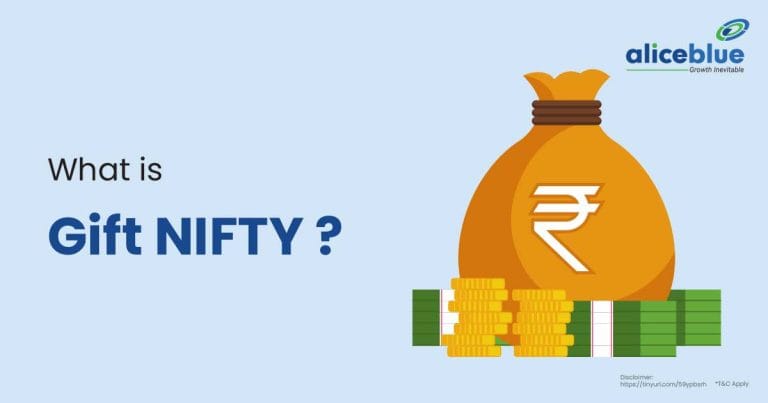The below table shows Textiles Stocks Below 100 based on the Highest Market Capitalization.
| Name | Market Cap (Cr) | Close Price (₹) |
| Trident Ltd | 17,466.66 | 34.33 |
| Alok Industries Ltd | 11,484.60 | 23.13 |
| LS Industries Ltd | 6,164.12 | 72.62 |
| Filatex India Ltd | 1,692.30 | 68.56 |
| Raj Rayon Industries Ltd | 1,281.21 | 23.04 |
| Indo Rama Synthetics (India) Ltd | 1,115.21 | 42.71 |
| Sutlej Textiles and Industries Ltd | 1,104.37 | 67.41 |
| Sarla Performance Fibers Ltd | 827.85 | 99.14 |
| Nandan Denim Ltd | 753.89 | 5.23 |
| Ashima Ltd | 733.67 | 38.28 |
Content:
- What Are Textile Stocks?
- Top Textile Stocks In India Below 100
- Best Textiles Stocks Below 100 In India
- Top Textiles Stocks Below 100
- Textiles Sector Stocks List Below 100
- Who Should Invest In Textile Stocks Below 100?
- How To Invest In The Textiles Stocks Below 100?
- Performance Metrics Of Textiles Stocks Below 100
- Benefits Of Investing In Textiles Stocks Below 100
- Challenges Of Investing In Textiles Stocks Below 100
- Introduction To Textiles Stocks Below 100
- Top Textiles Stocks Below 100 – FAQs
What Are Textile Stocks?
Textile stocks refer to the shares of companies involved in the textile industry, which encompasses the production and distribution of fibers, yarns, and fabrics. The performance of these stocks is influenced by factors like market trends, consumer demand, and economic conditions.
Investing in textile stocks offers exposure to the apparel and fashion sectors, industries known for their cyclicality and sensitivity to economic shifts. Investors often monitor global fashion trends, labor costs, and raw material availability, as these can significantly affect stock performance.
Moreover, the sustainability movement is increasingly impacting the textile industry. As consumers and regulators push for environmentally friendly practices, companies prioritizing sustainability may see improved market standing and investor interest, influencing stock valuations.
Top Textile Stocks In India Below 100
The table below shows the Top 10 Textile Stocks In India Below 100 based on 1 Year Return.
| Name | Close Price (rs) | 1Y Return (%) |
| LS Industries Ltd | 72.62 | 192.85 |
| Ashima Ltd | 38.28 | 135.3 |
| Sarla Performance Fibers Ltd | 99.14 | 103.6 |
| Nandan Denim Ltd | 5.23 | 75.99 |
| Filatex India Ltd | 68.56 | 37.46 |
| Alok Industries Ltd | 23.13 | 8.98 |
| Trident Ltd | 34.33 | -6.83 |
| Sutlej Textiles and Industries Ltd | 67.41 | -7.89 |
| Raj Rayon Industries Ltd | 23.04 | -14.83 |
| Indo Rama Synthetics (India) Ltd | 42.71 | -16.24 |

Best Textiles Stocks Below 100 In India
The below table shows the Best textile stocks Below 100 In India based on a 1-Month Return.
| Name | Close Price (rs) | 1M Return (%) |
| Ashima Ltd | 38.28 | 16.89 |
| Filatex India Ltd | 68.56 | 11.77 |
| Sutlej Textiles and Industries Ltd | 67.41 | 8.33 |
| Sarla Performance Fibers Ltd | 99.14 | 3.72 |
| Raj Rayon Industries Ltd | 23.04 | -0.82 |
| Indo Rama Synthetics (India) Ltd | 42.71 | -1.19 |
| Alok Industries Ltd | 23.13 | -2.44 |
| Trident Ltd | 34.33 | -2.75 |
| LS Industries Ltd | 72.62 | -7.12 |
| Nandan Denim Ltd | 5.23 | -17.38 |
Top Textiles Stocks Below 100
The table below shows Top Textiles Stocks Below 100 based on the highest day Volume.
| Name | Close Price (rs) | Daily Volume (Shares) |
| Alok Industries Ltd | 23.13 | 23,721,167 |
| Trident Ltd | 34.33 | 4,996,422 |
| Filatex India Ltd | 68.56 | 1,908,234 |
| Nandan Denim Ltd | 5.23 | 940,096 |
| Sarla Performance Fibers Ltd | 99.14 | 815,291 |
| Ashima Ltd | 38.28 | 437,121 |
| Sutlej Textiles and Industries Ltd | 67.41 | 209,227 |
| Indo Rama Synthetics (India) Ltd | 42.71 | 133,108 |
| Raj Rayon Industries Ltd | 23.04 | 18,275 |
| LS Industries Ltd | 72.62 | 11,141 |
Textiles Sector Stocks List Below 100
The table below shows the Textiles Sector Stocks List Below 100 based on the PE Ratio.
| Name | Close Price (rs) | PE Ratio (%) |
| LS Industries Ltd | 72.62 | -290.07 |
| Raj Rayon Industries Ltd | 23.04 | -174.17 |
| Alok Industries Ltd | 23.13 | -13.32 |
| Sutlej Textiles and Industries Ltd | 67.41 | -12.27 |
| Indo Rama Synthetics (India) Ltd | 42.71 | -5.48 |
| Ashima Ltd | 38.28 | 7.63 |
| Nandan Denim Ltd | 5.23 | 15 |
| Sarla Performance Fibers Ltd | 99.14 | 16.86 |
| Filatex India Ltd | 68.56 | 26.93 |
| Trident Ltd | 34.33 | 59.47 |
Who Should Invest In Textile Stocks Below 100?
Investors interested in high-risk, high-reward opportunities might consider textile stocks below 100, ideal for those seeking to capitalize on potentially undervalued companies in emerging markets. Such investments often attract individuals comfortable with industry-specific risks and economic fluctuations.
Investors with a keen understanding of market dynamics and the ability to perform thorough research might find these stocks appealing. This includes those who can analyze company fundamentals and industry trends to identify potential growth opportunities despite the inherent risks.
Additionally, these stocks may suit investors looking for diversification in their portfolios, especially if they are aiming to include exposure to the textile sector. Given their lower price, these stocks allow for broader portfolio coverage, potentially spreading risk across various investments.
How To Invest In The Textiles Stocks Below 100?
To invest in textile stocks below 100, start by identifying promising companies through detailed market research and analysis. Consider their financial health, market position, and growth prospects. Use a brokerage account to purchase shares, focusing on those with strong potential for appreciation.
Next, use diverse resources such as financial news, industry reports, and investment tools to gather information about the chosen companies. This comprehensive approach helps in making informed decisions, especially important when dealing with lower-priced, potentially more volatile stocks.
Finally, consider employing a strategy like dollar-cost averaging to mitigate risks associated with price fluctuations. Regularly investing a fixed amount can help manage volatility and potentially lower the average cost per share over time, optimizing investment returns in this sector.
Performance Metrics Of Textiles Stocks Below 100
Performance metrics of textile stocks below 100 include price-to-earnings ratios, revenue growth, and debt levels. These indicators are crucial for assessing the financial stability and growth potential of such companies, guiding investors on where to potentially place their capital for optimal returns.
Looking at the price-to-earnings ratio helps investors understand the market’s valuation of the company relative to its earnings. A lower ratio might suggest an undervalued stock, offering a potentially lucrative buying opportunity, especially in a volatile sector like textiles.
Revenue growth is a key indicator of a company’s market effectiveness and expansion capability. Consistent increases in revenue signal a successful business strategy and operational efficiency, making these stocks appealing to investors looking for growth opportunities in the textile industry.
Benefits Of Investing In Textiles Stocks Below 100
The main benefits of investing in textile stocks below 100 include potential high returns from undervalued companies, access to emerging market opportunities, and the possibility to buy more shares with limited capital, which could amplify gains if the stocks appreciate in value.
- High Return Potential: Textile stocks below 100 often represent undervalued companies that might be poised for significant growth. These stocks can offer substantial returns if the companies successfully expand or improve their market position, providing a lucrative opportunity for savvy investors.
- Emerging Market Access: Investing in these stocks can open doors to emerging markets, where many textile companies are located. These markets often experience rapid growth, offering a unique chance to benefit from economic expansions and increased consumer spending on textiles.
- Affordable Investment: With lower price points, these stocks allow investors to purchase more shares for the same amount of money. This affordability increases the potential for greater ownership stakes in promising companies, maximizing the impact of any positive market movements on the investor’s portfolio.
Challenges Of Investing In Textiles Stocks Below 100
The main challenges of investing in textile stocks below 100 include increased volatility, limited liquidity, and higher risk due to the potential financial instability of smaller companies. Additionally, lower-priced stocks may lack analyst coverage and information transparency, making thorough research and due diligence essential for investors.
- Heightened Volatility: Textile stocks below 100 often experience greater price fluctuations, exposing investors to increased market risk. These fluctuations can result from factors like changes in consumer demand, raw material prices, or global economic conditions, making it challenging to predict short-term price movements accurately.
- Limited Liquidity: Lower-priced textile stocks may have lower trading volumes, leading to liquidity issues. This can make it difficult for investors to buy or sell shares at desired prices, potentially resulting in wider bid-ask spreads and increased transaction costs, impacting overall investment returns.
- Financial Instability: Smaller textile companies, often represented by stocks below 100, may face financial challenges such as high debt levels or cash flow issues. This financial instability increases the risk of bankruptcy or operational difficulties, potentially leading to significant losses for investors.
Introduction To Textiles Stocks Below 100
Trident Ltd
The Market Cap of Trident Ltd is ₹17,466.66 crore, with a monthly return of -2.75% and a yearly return of -6.83%. The stock is 10.49% away from its 52-week high.
Trident Ltd is a leading player in the textile and paper industries. Known for its innovative products, the company focuses on sustainable and quality-driven manufacturing. Despite recent stock challenges, it continues to remain resilient in the market with a significant customer base.
With a robust market presence, Trident aims to expand its product portfolio and improve financial metrics. Its long-term growth strategy involves leveraging its strong brand presence and operational efficiencies to capture a larger market share in the global textile and paper industries.
Alok Industries Ltd
The Market Cap of Alok Industries Ltd is ₹11,484.60 crore, with a monthly return of -2.44% and a yearly return of 8.98%. The stock is 17.41% away from its 52-week high.
Alok Industries Ltd is a significant player in the textile industry, specializing in high-quality fabric production and exports. The company has demonstrated consistent growth, reflecting its strong operational capabilities and market demand. It remains a key exporter of textile products globally.
By focusing on modern technologies and sustainable practices, Alok Industries aims to strengthen its market position further. Its ongoing initiatives to enhance efficiency and expand capacity are set to drive long-term growth and profitability.
LS Industries Ltd
The Market Cap of LS Industries Ltd is ₹6,164.12 crore, with a monthly return of -7.12% and a yearly return of 192.85%. The stock is 222.76% away from its 52-week high.
LS Industries Ltd operates in the industrial sector, focusing on innovative solutions and efficient manufacturing processes. The company has seen impressive growth over the past year, driven by strong demand and effective strategic initiatives.
The company remains committed to technological advancements and customer-centric services. With a robust product line and operational efficiency, LS Industries is well-positioned to sustain its upward trajectory in the competitive industrial market.
Filatex India Ltd
The Market Cap of Filatex India Ltd is ₹1,692.30 crore, with a monthly return of 11.77% and a yearly return of 37.46%. The stock is 52.53% away from its 52-week high.
Filatex India Ltd is a key manufacturer of polyester yarns, serving various industries across India and abroad. Known for its innovative and high-quality products, the company has consistently delivered strong financial performance and operational growth.
As a leader in the synthetic yarn market, Filatex India is focused on expanding its product portfolio and improving efficiency. Its investment in advanced technology and sustainable practices is expected to drive further growth and profitability in the coming years.
Raj Rayon Industries Ltd
The Market Cap of Raj Rayon Industries Ltd is ₹1,281.21 crore, with a monthly return of -0.82% and a yearly return of -14.83%. The stock is 53.60% away from its 52-week high.
Raj Rayon Industries Ltd is engaged in the manufacturing of polyester filament yarn, catering to domestic and international markets. Despite a challenging year, the company remains committed to delivering quality products and meeting customer expectations.
The company’s focus on operational efficiency and cost optimization positions it well for recovery. As demand stabilizes in the textile sector, Raj Rayon aims to regain market confidence and drive long-term growth.
Indo Rama Synthetics (India) Ltd
The Market Cap of Indo Rama Synthetics (India) Ltd is ₹1,115.21 crore, with a monthly return of -1.19% and a yearly return of -16.24%. The stock is 17.34% away from its 52-week high.
Indo Rama Synthetics is a leading manufacturer of polyester staple fiber, catering to both domestic and international markets. The company is known for its quality products and commitment to sustainability, which drive its operational efficiency.
Despite recent stock performance challenges, Indo Rama continues to innovate and adapt to market changes. Its strategic focus on enhancing capacity and expanding its global footprint positions it for future growth.
Sutlej Textiles and Industries Ltd
The Market Cap of Sutlej Textiles and Industries Ltd is ₹1,104.37 crore, with a monthly return of 8.33% and a yearly return of -7.89%. The stock is 51.48% away from its 52-week high.
Sutlej Textiles is a leading manufacturer of dyed yarn and home textile products. The company has a diversified portfolio catering to various domestic and international clients, ensuring stable revenue streams.
By leveraging its expertise in innovative textile solutions, Sutlej Textiles aims to capitalize on market opportunities. Its strong focus on research and development positions it as a competitive player in the textile industry.
Sarla Performance Fibers Ltd
The Market Cap of Sarla Performance Fibers Ltd is ₹827.85 crore, with a monthly return of 3.72% and a yearly return of -16.24%. The stock is 108.72% away from its 52-week high.
Sarla Performance Fibers is a significant player in the polyester and nylon yarn segment, catering to both industrial and domestic markets. Its commitment to quality and innovation ensures customer satisfaction and market relevance.
The company focuses on enhancing production capacity and developing high-performance fibers to meet growing market demand. Its long-term growth strategy includes diversifying its product range and expanding its global reach.
Nandan Denim Ltd
The Market Cap of Nandan Denim Ltd is ₹753.89 crore, with a monthly return of -17.38% and a yearly return of 75.99%. The stock is 99.62% away from its 52-week high.
Nandan Denim Ltd is a leading player in the denim fabric manufacturing sector, known for its quality products and strong market presence. The company serves both domestic and international markets with a diversified product portfolio.
With a focus on expanding its production capabilities and adopting sustainable practices, Nandan Denim is well-positioned to capitalize on the growing demand for denim fabric globally.
Ashima Ltd
The Market Cap of Ashima Ltd is ₹733.67 crore, with a monthly return of 16.89% and a yearly return of 135.30%. The stock is 145.38% away from its 52-week high.
Ashima Ltd specializes in cotton fabric production, offering high-quality textiles to domestic and global clients. Its strong operational performance and innovative product range make it a key player in the textile industry.
Ashima continues to focus on efficiency, sustainability, and market expansion to drive growth. Its commitment to innovation and customer satisfaction positions it well for future opportunities in the textile sector.

Top Textiles Stocks Below 100 – FAQs
Best Textiles Stocks Below 100 #1: Trident Ltd
Best Textiles Stocks Below 100 #2: Alok Industries Ltd
Best Textiles Stocks Below 100 #3: LS Industries Ltd
Best Textiles Stocks Below 100 #4: Filatex India Ltd
Best Textiles Stocks Below 100 #5: Raj Rayon Industries Ltd
The Top Best Textiles Stocks Below 100 based on market capitalization.
The top textile stocks below 100 include Trident Ltd, Alok Industries Ltd, LS Industries Ltd, Filatex India Ltd, and Raj Rayon Industries Ltd. These companies are noted for their affordability and potential in the textile market, spanning various niches from synthetic yarns to garment manufacturing.
Yes, you can invest in textile stocks below 100. These stocks offer opportunities for potential growth and diversification in your investment portfolio. However, it’s essential to carefully research and assess the risks associated with investing in lower-priced stocks, including increased volatility and liquidity concerns.
Investing in textile stocks below 100 can be advantageous for investors seeking high-risk, high-reward opportunities. These stocks may represent undervalued companies with the potential for significant growth. However, it’s crucial to consider the associated risks, including heightened volatility and potential financial instability of smaller companies in this price range.
To invest in textile stocks below 100, start by researching and identifying promising companies in the textile industry. Utilize a brokerage platform to purchase shares of these companies. Conduct thorough due diligence, focusing on factors such as financial health, market position, and growth prospects, to make informed investment decisions.
Here are some of the Best Stock Research Articles listed based on Top Sectors (Industries), Market Cap, and Fundamental Analysis Factors:
Disclaimer: The above article is written for educational purposes, and the companies’ data mentioned in the article may change with respect to time The securities quoted are exemplary and are not recommendatory.








